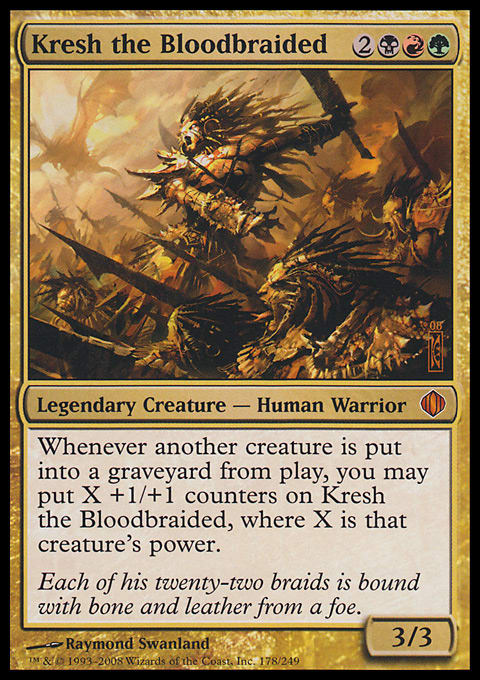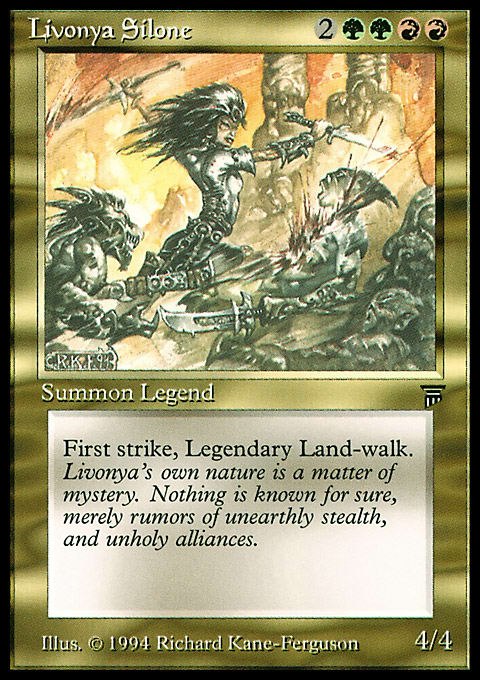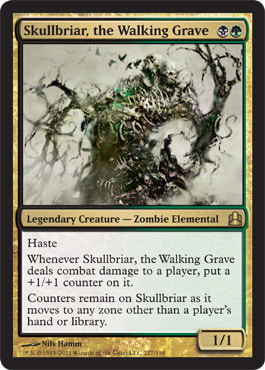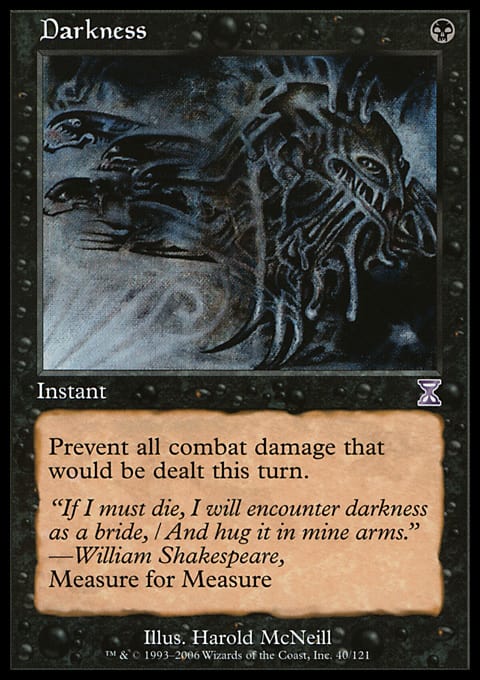The Three Things I Know
There are three things I know about multiplayer—things I know with absolute certainty. I wish there were more than three things, but they’re big, important things, so I guess I should be happy with that. One of them is a thing that everyone probably already knows—or thinks they know—but two of them will come as a surprise to a lot of folks, so I'm going to share.
By the time you’ve read all three things, you should’ve learned something that makes you more successful at multiplayer.
Thing 1
or
You Keep Using That Word; I Do Not Think It Means What You Think It Means
Let’s start with one of the surprising ones: The word “politics” doesn’t mean anything in multiplayer. If you’re like most of the people I’ve played with, you probably use this word a lot, but it doesn’t actually have any meaning.
Don’t get me wrong; I’m a disciple of The Ferrett as well as Alongi, and I know that there is politics in multiplayer. I even wrote about the importance of politics in one of my first articles for StarCity Games, and I have used politics to thread my way through more than a few treacherous board states. But the fact is that politics is the most misunderstood concept in multiplayer. Even among the casual community, we are just nowhere near a shared idea of what politics means in multiplayer—and I can prove it! Just look at the comments from my last politics-versus-strategy article: Some people said I was spot on; some said I was full of crap; and some said I was right about those examples but that I was underestimating the importance of politics.
GatheringMagic has the best casual readership out there, and even we can't agree on what politics means. So when you use the word “politics” to describe what happens in your multiplayer games, you almost certainly don’t mean the same thing your friends mean; as a result, your conversation is likely to be a confusing and/or pointless.
Please note that I am not trying to talk down to anyone. I’m not saying, “I know what politics means, but you don’t.” The fact of the matter is that I have spent a ridiculous amount of time thinking about this question, and I eventually came up with a definition that I think is pretty good, but if the people I talk with don’t share the same idea of politics, I can't have a meaningful discussion about it either. Nobody has agreed on what politics means—not Alongi and The Ferrett, not Bruce Richard and I, not the GatheringMagic readership.
This is obviously a problem for the Casual Tribe; call me crazy, but I like to use words that mean something.1 That means that it is important for us, as a community, to have a real discussion about this and define exactly what this word “politics” means in a multiplayer context (and I’ll have some thoughts on that later). Until we do, we need to stop using it as though it means something.
Thing 2
Or
The One You Thought You Already Knew
This is the one that everyone should know: The most important skill in multiplayer is threat assessment. Seriously, you need to have that tattooed somewhere prominent—just so you don’t forget. Good threat assessment is the cornerstone of multiplayer success; the Holy Grail; the meat and potatoes; the tired cliché.
In the same way that I know Thing 1 because so many smart people disagree on it, I know Thing 2 because so many smart people agree. Threat assessment was the main unifying thread in both Alongi’s and The Ferrett’s writing, and everyone through Abe Sargent, Kelly Digges, Adam Styborski, and those good-looking Muse Vessel blokes agree with them.
But—and this is what a lot of people don’t understand—threat assessment is about so much more than just asking, “Who is threatening me?” A lot of people misunderstand the Alongi School because they think of it as a simple three-step process:
- Who is the biggest threat to me?
- Kick them in the fork as hard as you can
- Repeat
That might work sometimes—like if I have a 28/28 trampling Kresh, the Bloodbraided in a three-player game and both my opponents are tapped out—but good threat assessment usually requires a more nuanced approach. Here’s the ideal model:
- Who is the biggest threat to me?
- What can I do about that threat?
- How can they respond?
- Who is the biggest threat to each other player at the table?
- What can they each do about their respective threats?
- What are the likely responses?
- What is my best strategy, based on the likely interests, actions, and reactions of my opponents?
- Repeat
For example, I was recently in a seven-player game that rapidly became a five-player. Of the five survivors, there were three decks that were clearly the most powerful—Dracogenius control, Glissa recursion, and Omnath ramp—and two decks that were very clearly lagging behind—Lovisa tribal and my Livonya Silone aggro deck. It was pretty clear to me that the Dracogenius deck was the biggest threat to me (step one), but also that I couldn’t take care of it myself (step two).
At the same time, I realized that both Glissa and Omnath were threatened by Niv, too . . . and they were both more threatening to Niv than I was (step three). As a result, my threat assessment led me to the conclusion that my best strategy was to sit back and let the heavyweights slug it out, interjecting only occasionally by swinging for 2 or blowing up a truly terrifying permanent (step seven). It was only when Niv ousted Omnath and Glissa stalled (step eight) that I committed all my forces to beating Niv down (steps one and two).2 All of my actions were guided by threat assessment and were completely consistent with the Alongi School of multiplayer.
The point of this story is that threat assessment is complicated, and it involves understanding how your opponents are thinking. That knowledge of how everyone sees the board and what they're likely to do about it can be more important to winning than just playing strong decks. In the words of one expert in strategic studies:
Like a general commanding an army, you have to think about what the opposing force will do before you deploy your forces.
Thing 3
or
I Told You That So I Can Tell You This
When we talk about threat assessment, we’re really talking about strategy. The key point of threat assessment is that Magic is an interactive game, so the success of any given strategy depends on the strategies of your opponents and how they all interact. Just as in war, though, strategists make their plans and deploy their forces while politicians barter, cajole, and threaten each other in the background, and that brings me to the third thing that I know to be true: Multiplayer strategy and multiplayer politics are different. This is a hugely important and hugely underappreciated fact—when and how you use politics is different than when and how you use strategy. If you don’t know the difference between strategy and politics, you're like a carpenter who doesn’t know the difference between a hammer and a saw: you can't use either tool effectively.
I’ve tried on two separate occasions to build a bottom-up definition of politics as it applies to Magic—you can read the short version here and the long version here—but I realized it might be easier to start with a top-down definition. So here goes:
- Strategy and politics in Magic are metaphors.
Strategy is a field of study that focuses on how to use military force effectively, and we borrow ideas from this when we talk about business strategy or Magic strategy or any other kind of strategy. For example, in multiplayer, we use strategy-based metaphors such as tempo,4 deterrence, and terrain—tell me “enters the battlefield” isn't a strategic metaphor. In war as in Magic, you have to try to achieve your goals while your opponents are also trying to achieve their goals,5 which makes strategy such a clear and useful metaphor in multiplayer Magic.
Politics is also a field of study in the real world. Politics is a realm of negotiation and bargaining because in politics, you can never get what you want without someone else’s help. In the real world of politics, President Obama has to get the Republicans in congress to sign off on just about anything he wants to do, and if he can’t get them to agree, his hands are tied. Even a dictator like Kim Jong-Il, or his son Kim Jong-chubby, still has to negotiate with his supporters to keep his power base intact. In either case, they can't achieve their goals without the agreement and support of others.
In the same way, when we speak metaphorically of office politics, we mean that someone is bargaining with someone else to get what he or she wants, using personal relationships to get ahead or otherwise receiving some special treatment that he or she hadn't earned—obviously, if the best worker in the office was promoted, we wouldn’t describe that as politics.
From this, it should be clear that the terms “politics” and “strategy” in Magic are both metaphors. That might seem like a very simple point, but it’s actually not. To clear up the confusion about what is politics in multiplayer, all we have to do is look at what politics in the real world is essentially about and then apply that to Magic.
Very simply, the realm of politics is about negotiation, compromise, and agreement, and it is used in situations in which you need to receive someone else’s agreement to achieve your goals. Strategy is about you playing your cards to make the best effect; politics is about getting others to agree to do something that you can't do for yourself.
Now, how do we use politics and strategy as metaphors to understand multiplayer Magic? Here are some pretty typical examples.
- Example 1: If another player is too strong for either of us to deal with on our own, we negotiate a cease-fire agreement to deal with The Threat before killing each other.
- Example 2: I can’t kill one opponent because he has Mystifying Maze, which is kryptonite to my Kresh deck, so I promise not to attack you if you Strip Mine the Maze for me.
- Example 3: The Skullbriar, the Walking Grave Voltron player attacks you for lethal commander damage, and I offer to save you with a Darkness if you agree to do what I tell you for the rest of the game.
All three of those examples are indisputably politics. None of the people who have argued for different definitions of politics would disagree with me that all of these examples are political. Why? Because they fit the metaphor of politics perfectly. Just as in the real world of politics, we see one player who can't achieve what he wants unless someone else agrees to work with him. Just as in the real world of politics, we can see negotiated agreement followed by coordinated action.
Now consider the following scenarios, which are strategic, but which are often described as political:
- Example 4: I attack the player who is the biggest threat to me even though I can't kill him on my own. Then, you decide to attack the same player because he is also the biggest threat to you.
- Example 5: You destroy the Mystifying Maze that is holding back my 28/28 Kresh, then I attack the player who just lost his Maze because he is more of a threat to me than you are.
- Example 6: The Skullbriar Voltron player attacks you for lethal commander damage because your deck has enough artifact removal to completely hose his Equipment-based strategy. I save you by casting Darkness because I’m hoping that you’ll be able to use some of that artifact removal to weaken Skullbriar.
As you probably noticed, the last three examples closely parallel the first three examples. What’s the difference? In the latter examples, there is no negotiation or agreement. In each case, the players are making their own decisions about how to use their resources in order to achieve their goals. That might mean attacking someone whom an opponent is also attacking, helping an opponent to achieve a shared goal or keeping someone alive because he’s worth more to you alive than dead. If there is no negotiation or agreement—as in examples four, five, and six—the strategy metaphor is appropriate and the politics metaphor is not. It is also important to notice that what you do is different in the political examples.
Conclusion
The definition of politics that I proposed is:
- High Politics is the manipulation of hidden information.
- Low Politics is the manipulation or selective emphasis of known information.
It doesn’t matter whether you agree with my definition (it may be the best definition of politics out there, but that’s because everyone else has ignored the question, not because I’m so smart); the important thing is that we talk it out and come up with a clear definition that makes sense. Feel free to use this as a starting point for a discussion with your playgroup about what is actually politics and what is not, and share your ideas here.
Most importantly, a definition that separates politics from strategy can help us to become better at both, because the tools and techniques of politics are fundamentally different than those of strategy . . . consider that a hint for my next article.
1 If you ever did debating in high school, you know that the first step in any debate is to define the terms. Similarly in science and philosophy, a great deal of time is spent nailing down definitions and taxonomies because you can't discuss something if you don’t know exactly what it is and what it isn't. If ever there was a concept that needed this treatment, it’s multiplayer politics.
2 To be honest, I didn’t win, but I was able to drop Niv to 1 life before he killed me, leaving Lovisa as the last Barbarian standing. If I hadn't sat back and I’d instead gone after Niv like my life depended on it, he would have focused more of his energy on screwing me over, so I would’ve died much sooner, and Omnath and Glissa would’ve lasted longer.
3 Barry Buzan (1991) People, States and Fear: An Agenda for International Security Studies in the Post-Cold War Era. 2nd ed. Boulder: Lynne Rienner, p. 19. Emphasis added.
4 As I'm sure Brandon will point out, tempo is itself a metaphor borrowed from the world of music. I could’ve said “initiative,” which I believe is more commonly used in military strategy (and role-playing games!), but tempo is the Magical equivalent of initiative, and I think the two can be used interchangeably.
5 Generally speaking, their goals include killing you, so Magic strategy, like military strategy, is all about conflict.


























